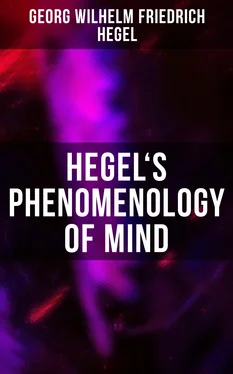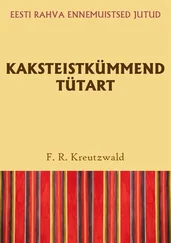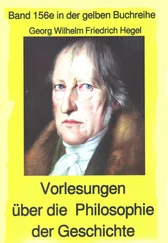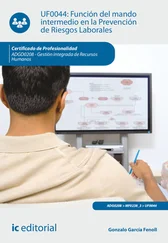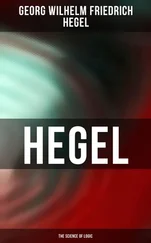1.Cf. Encyclo. § 250.
2.Cf. Analysis of Desire , p. 220 ff.
II. Perception: Or Things and Their Deceptiveness 3
Table of Contents
[In this as in the preceding section apprehension is effected under conditions of sense. But whereas in the preceding type of consciousness the universality which knowledge implies and requires no sooner appeared than it melted away, here in Perception we start from a certain stability in the manner of apprehension, and a certain constancy in the content apprehended. The universality in this case satisfies more completely the demands of knowledge. The problem for further analysis is to find the form which the universal here assumes and to determine the way in which the unity of the object (the “thing”) holds together its essential differences. The result shows that the unity of the thing qua unity is only admissible as an unqualified or non-sensuous unity. It is a universal, but as such, not conditioned by sense; it is a pure or “unconditioned” universal-a thought proper. Being undetermined by sense, it transcends sense-apprehension, and so transcends perception proper, and compels the mind to adopt another cognitive attitude in order to apprehend it. This new attitude is Understanding.
The following section is thus indirectly an analysis and a criticism of the doctrine which reduces or confines knowledge to perception. It shows that the position “esse est percipi” must give way to the principle “esse est intelligi”.]
Immediate certainty does not make the truth its own, for its truth is something universal, whereas certainty wants to deal with the This. Perception, on the other hand, takes what exists for it to be a universal. Universality being its principle in general, its moments immediately distinguished within it are also universal; I is a universal, and the object is a universal. That principle has arisen and come into being for us who are tracing the course of experience; and our process of apprehending what perception is, therefore, is no longer a contingent series of acts of apprehension, as is the case with the apprehension of sense-certainty; it is a logically necessitated process. With the origination of the principle, both the moments, which as they appear merely fall apart as happenings, have at once together come into being: the one, the process of pointing out and indicating, the other the same process, but as a simple fact-the former the process of perceiving, the latter the object perceived. The object is in its essential nature the same as the process; the latter is the unfolding and distinguishing of the elements involved; the object is these same elements taken and held together as a single totality. For us (tracing the process) or in itself, 4 the universal, qua principle, is the essence of perception; and as against this abstraction, both the moments distinguished-that which perceives and that which is perceived-are what is non-essential. But in point of fact, because both are themselves the universal, or the essence, they are both essential: but since they are related as opposites, only one can in the relation (constituting perception) be the essential moment; and the distinction of essential and non-essential has to be shared between them. The one characterized as the simple fact, the object, is the essence, quite indifferent as to whether it is perceived or not: perceiving, on the other hand, being the process, is the insubstantial, the inconstant factor, which can be as well as not be, is the non-essential moment.
This object we have now to determine more precisely, and to develop this determinate character from the result arrived at: the more detailed development does not fall in place here. Since its principle, the universal, is in its simplicity a mediated principle, the object must express this explicitly as its own inherent nature. The object shows itself by so doing to be the thing with many properties . The wealth of sense-knowledge belongs to perception, not to immediate certainty, where all that wealth was merely something alongside and by the way; for it is only perception that has negation, distinction, multiplicity in its very nature.
The This, then, is established as not This, or as superseded, and yet not nothing ( simpliciter ), but a determinate nothing, a nothing with a certain content, viz. the This . The sense-element is in this way itself still present, but not in the form of some particular that is “meant”-as had to be the case in immediate certainty-but as a universal, as that which will have the character of the property . Cancelling, superseding, brings out and lays bare its true twofold meaning which we found contained in the negative: to supersede ( aufheben ) is at once to negate and to preserve. The nothing being a negation of the This, preserves immediacy and is itself sensuous, but a universal immediacy. Being, however, is a universal by its having in it mediation or negation. When it brings this explicitly out as a factor in its immediacy, it is a specifically distinct determinate property . As a result, there are many such properties set up at once, one the negation of the other. Since they are expressed in the simple form of the universal, these determinate characters-which, strictly speaking, become properties only by a further additional characteristic-are self-related, are indifferent to each other, each is by itself, free from the rest. The simple self-identical universality, however, is itself again distinct and detached from these determinate characteristics it has. It is pure self-relation, the “medium” wherein all these characteristics exist: in it, as in a bare, simple unity, they interpenetrate without affecting one another; for just by participating in this universality they are indifferent to each other, each by itself.
This abstract universal medium, which we can call “Thinghood” in general or pure essential reality, is nothing else than the Here and Now as this on analysis turned out to be, viz. a simple togetherness of many Heres and Nows. But the many (in the present case) are in their determinateness themselves simply universals. This salt is a simple Here and at the same time manifold: it is white, and also pungent, also cubical in shape, also of a specific weight, and so on. All these many properties exist in a simple Here, where they interpenetrate each other. None of these has a different Here from the others; each is everywhere in the same Here where the others are. And at the same time, without being divided by different Heres, they do not affect each other in their interpenetration; its being white does not affect or alter the cubical shape it has, and neither affects its tart taste, and so on: on the contrary, since each is simple relation to self, it leaves the others alone and is related to these merely by being also along with them, a relation of mere indifference. This “Also” is thus the pure universal itself, the “medium”, the “Thinghood” keeping them together.
In this relation, which has emerged, it is merely the character of positive universality that is first noticed and developed. But there is still a side presented to view which must also be taken into account. It is this. If the many determinate properties were utterly indifferent to each other, and were entirely related to themselves alone, they would not be determinate; for they are so, merely in so far as they are distinguished and related to others as their opposites. In view of this opposition, however, they cannot exist together in the bare and simple unity of their “medium”, which unity is just as essential to them as negation. The process of distinguishing them, so far as it does not leave them indifferent, but effectually excludes, negates one from another, thus falls outside this simple “medium”. And this, consequently, is not merely an “also”, an unity indifferent to what is in it, but a “one” as well, an excluding repelling unity.
Читать дальше
